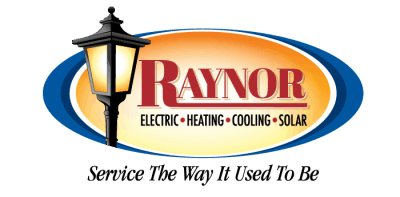If you live in the Eastampton area, you know we experience some wild weather. From hurricanes, torrential downpours, heavy snow, and even hail, our homes take a beating from Mother Nature. While you may think that purchasing an emergency generator is unnecessary, in the event of a power outage, you will be happy you are prepared. Today the professionals at Raynor share the different types of generators and why you should consider buying one.
Should I Buy a Generator?
An emergency generator acts as a backup power source for your home when the lights go out. Whether you live in an area with extreme weather or regular power outages, it’s a good idea to consider purchasing a generator. If you’ve been asking yourself, “Should I buy a generator?” we’re here to tell you yes, and offer four important reasons why you won’t regret this investment.
Keep important appliances running
When the power goes out, a backup generator will allow you to keep the important things running, like lighting, your refrigerator, and even medical equipment.
Prevent spoilage
During an outage, it’s not guaranteed when power will be restored. This can cause your fridge and freezer to be out of commission for some time. In this case, a generator can prevent food spoilage and wasted money.
Protect your home from water damage
During a thunderstorm, torrential rain can cause flooding. Luckily, if your home is equipped with a sump pump you’ll never have to worry about a wet basement…until the power goes out. If you have an emergency generator in place, your sump pump can continue to run, keeping your home flood-free during a bad storm.
Keep you and your family safe and comfortable
Whether the power gets knocked out after a snowstorm or you lose electricity during a thunderstorm, no power during these times can prove to be extremely uncomfortable. Keep your family warm in the winter and cool in the summer with a backup generator.
Types of Generators
If you’re ready to invest in a generator, you may be wondering about the main differences between standby and a backup. Today the experts at Raynor break down the important distinctions between the two types of generators.
Standby Generator
The biggest difference between a standby generator and a backup is how they provide electricity. A standby generator is always in a “standby mode”, meaning it’s constantly monitoring power around the clock. When an outage occurs, your standby generator will immediately power on, without power disruption. While standby generators are an investment, you can rest assured knowing that wherever you are when a power outage happens, your home will continue to be up and running.
Backup Generator
A backup generator is portable and not a permanent installation. They do not automatically detect an outage but instead must be started manually to keep your home up and running. That means you must be on-site to receive power. Since a backup generator isn’t a permanent installation, power is created by setting up extension cords directly from the machine to the desired appliances.
Why Choose the Generator Services at Raynor?
If you’ve been searching for high-quality generator services near me, look no further than Raynor! Since 1994, we have been offering residents in Eastampton, NJ, superior electrical services. We understand what you need when it comes to services and home improvement—quality you can trust! That’s why we strive to constantly satisfy our customer’s needs with our variety of services. We offer warranties on our work, up-front pricing, and hassle-free scheduling because we know when an electrical issue arises, it can’t and won’t wait. For all your home service needs, trust the experts—trust Raynor. Call us today at 609-714-0505 to schedule an appointment with one of our professionals!













